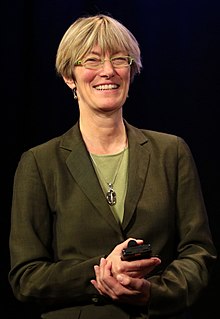Workshop Program
Speakers

Is Algorithmic Justice an Oxymoron?
Abstract. We will explore the ways in which the profit motive and algorithmic decision-making have combined to elevate consumers over citizens, with damaging consequences for electoral processes and democracy’s public square. We will also trace how legal American government attempts to exploit the Internet Revolution to defend democracy have had negative unintended consequences. The efforts of freedom’s enemies to harness these outcomes to malevolent ends will be considered. The aim is to provide a point of departure for thinking about justice in a big data world, as well as potential responses to looming ethical challenges, both for the individual data scientist and for the companies or government who employs them.
Bio. Allison Stanger is the Russell Leng ’60 Professor of International Politics and Economics and founding director of the Rohatyn Center for International Affairs at Middlebury College. She is the author of One Nation Under Contract: The Outsourcing of American Power and the Future of Foreign Policy and the forthcoming Life, Liberty, and the Pursuit of Leaks: The Story of Whistleblowing in America, both with Yale University Press. She is working on a new book tentatively titled Consumers vs. Citizens: How the Internet Revolution is Remaking Global Security and Democracy’s Public Square. Stanger has published opinion pieces in Foreign Affairs, Foreign Policy, Financial Times, International Herald Tribune, New York Times, USA Today, U.S. News and World Report, and the Washington Post and has testified before the Commission on Wartime Contracting, the Senate Budget Committee, the Congressional Oversight Panel, the Senate HELP Committee, and the House Committee on Government Oversight and Reform. She is a member of the Council on Foreign Relations and received her Ph.D. in Political Science from Harvard University. She wrote March and April 2017 opinion pieces in the New York Times titled “Understanding the Angry Mob at Middlebury That Gave Me a Concussion,” and “Middlebury, My Divided Campus.” Stanger is currently a Scholar in Residence in the Cybersecurity Initiative at New America and External Faculty at the Santa Fe Institute.

Platform Health Metrics
Paul Resnick, University of Michigan, USA
Abstract. Platform companies like Google, Facebook, and Twitter now have responsibility for the "health" of our public communication ecosystem. How widely does misinformation spread? Are there productive conversations about public affairs? Are people making positive connections across social fault-lines of race, religion, place, and political orientation? Public metrics have the potential to track sharp short-term changes that indicate attacks that require immediate response from the platforms, and long-term trends that demand concerted efforts from both the platforms and other societal actors. I will discuss desiderata for platform health metrics and present some examples that we are developing at the Center for Social Media Responsibility.
Bio. Paul Resnick is the Michael D. Cohen Collegiate Professor of Information and Associate Dean for Research and Faculty Affairs at the University of Michigan School of Information. Earlier this year, he founded the Center for Social Media Responsibility, which encourages and helps media platforms to meet their public responsibilities. He was a pioneer in the fields of recommender and reputation systems. The GroupLens system (co-developed with John Riedl and others) was awarded the 2010 ACM Software Systems Award. His articles have appeared in Scientific American, Wired, Communications of the ACM, The American Economic Review, Management Science, and many other venues. His 2012 MIT Press book (co-authored with Robert Kraut), was titled “Building Successful Online Communities: Evidence-based Social Design”.

Diversity: a concept with a mission, and what that means for diverse recommender design
Natali Helberger, University of Amsterdam, The Netherlands
Abstract. Whether it is the controversy around Facebook’s Newsfeed, the impact of data-driven platforms on our democracies, the implications of personalised, data-driven recommendation systems for the future of our news: one central concern in all these controversies is how to ensure that data driven recommendations do not give us more of the same, enclose us in filterbubbles and paint a monochrome picture of the world around? And while there is broad agreement that the answer is ‘more diverse recommendations’, and also that diversity in recommendations is in principle a good thing and worth striving for, the question remains: how would a recommendation need to look like to be considered sufficiently ‘diverse’? And what are the challenges of transforming critical but also inherently vague public values (such as diversity) into concrete guidance on what ‘diverse’ in the context of recommendations actually means? In my presentation, I will seek to answer this question from the perspective of democratic theory. I will argue that media diversity is not a value in itself, but a concept with a mission. I will also explain that what that mission, and hence ‘diverse’ is depends on the democratic theory (and the values behind that theory) one follows. While liberal democratic theories may emphasis personal autonomy, self-determination and diversity as facilitator of individual choices, in more participatory or critical theories diversity can have a very different function: to foster tolerance, open mindedness, and balanced discourse, or even: to challenge established elites and give prominence to minorities. Once we have established why exactly it is that we value diversity we can make more concrete suggestions of what makes recommendations ‘diverse’. Ultimately, I will argue that there are different forms or ‘flavours’ of diversity, and how this understanding can help us to create different typologies of ‘diverse recommenders’.
Bio. Natali Helberger is professor in Information Law at the Institute for Information Law (IViR). Focus points of her research are the interface between technology and information law, user rights and the changing role of the user in information law and policy. Natali is founder and Co-PI of the University of Amsterdam’s Research Priority Are “Personalised Communication”, member of the Steering Committee of the VW Big Data Route of the Dutch National Science Agenda, and elected representative of the “Citizen & Democracy” line of the VSNU Digital Society Program. She is Member of the European Commission’s High Level Expert Group Connect Advisory Forum, and elected Member of the Council of Europe Expert Committee on Human Rights Dimensions of Automated Data Processing and Artificial Intelligence. For her research into news recommenders she has been awarded an ERC Research Grant. In another of her projects – funded by the Dutch SIDN fonds, she develops, in cooperation with RTL and Blendle a ‘diversity toolkit’ to measure & improve the diversity of news recommendations.

Predicting Human Decision-Making: From Prediction to Recommendation
Ariel Rosenfeld, Weizmann Institute of Science, Israel
Abstract. Human decision-making often transcends our formal models of “rationality”. Designing recommender systems that interact proficiently with people necessitates the modeling of human behavior and the prediction of their decisions. In this talk, we will focus on the prediction of human decision-making and its use in designing human-aware recommender systems of varying natures; from purely conflicting interaction settings (e.g., security) to fully cooperative interaction settings (e.g., human rehabilitation). We will present computational representations, algorithms and empirical methodologies for meeting the challenges that arise from the above tasks in both a single interaction (one-shot) and repeated interaction settings.
Bio. Ariel Rosenfeld is a Koshland Postdoctoral Fellow at the Computer Science & Applied Mathematics Department, Weizmann Institute of Science, Israel and a lecturer at Bar-Ilan University (Israel). He obtained a PhD in Computer Science from Bar-Ilan University following a BSc in Computer Science and Economics, graduated `magna cum laude', from Tel-Aviv University, Israel. Rosenfeld's research focus is Human-Agent Interaction and he has published on the topic at top venues such as IJCAI, AAAI, AAMAS and ECAI. Rosenfeld has a rich lecturing background which spans over a decade and has recently been awarded the ``Best Lecturer" award for outstanding teaching by Bar-Ilan University.

Diversity maximization in social networks
Abstract. Online social media are a major venue of public discourse today, hosting the opinions of hundreds of millions of individuals. Social media are often credited for providing a technological means to break information barriers and promote diversity and democracy. In practice, however, the opposite effect is often observed: users tend to favor content that agrees with their existing world-view, get less exposure to conflicting viewpoints, and eventually create "echo chambers" and increased polarization. Arguably, without any kind of moderation, current social-media platforms gravitate towards a state in which net-citizens are constantly reinforcing their existing opinions.
In this talk we present our ongoing line of work on analyzing and moderating online social discussions. We first consider the questions of detecting controversy using network structure and content. We then address the problem of designing algorithms to break filter bubbles, reduce polarization, and increase diversity. We discuss a number of different strategies such as user and content recommendation, as well as viral approaches.
Bio. Aristides Gionis is a professor in the department of Computer Science in Aalto University. His previous appointments include being a visiting professor in the University of Rome and a senior research scientist in Yahoo! Research. He is currently serving as an action editor in the Data Management and Knowledge Discovery journal (DMKD), an associate editor in the ACM Transactions on Knowledge Discovery from Data (TKDD), and an associate editor in the ACM Transactions on the Web (TWEB). He has contributed in several areas of data science, such as algorithmic data analysis, web mining, social-media analysis, data clustering, and privacy-preserving data mining. His current research is funded by the Academy of Finland (projects Nestor, Agra, AIDA) and the European Commission (project SoBigData).

Good City Life
Abstract. The corporate smart-city rhetoric is about efficiency, predictability, and security. “You’ll get to work on time; no queue when you go shopping, and you are safe because of CCTV cameras around you”. Well, all these things make a city acceptable, but they don’t make a city great. We have launched goodcitylife.org - a global group of like-minded people who are passionate about building technologies whose focus is not necessarily to create a smart city but to give a good life to city dwellers. The future of the city is, first and foremost, about people, and those people are increasingly networked. We will see how a creative use of network-generated data can tackle hitherto unanswered research questions. Can we rethink existing mapping tools [happy-maps]? Is it possible to capture smellscapes of entire cities and celebrate good odors [smelly-maps]? And soundscapes [chatty-maps]?
Bio. Daniele Quercia is a computer scientist and is currently building (and hiring for) the Social Dynamics team at Bell Labs Cambridge UK, has been named one of Fortune magazine's 2014 Data All-Stars, and spoke about “happy maps” at TED. His research area is urban computing. His research received best paper awards from ACM Ubicomp 2014 and from AAAI ICWSM 2015, and an honorable mention from AAAI ICWSM 2013. He was Research Scientist at Yahoo Labs, a Horizon senior researcher at The Computer Laboratory of the University of Cambridge, and Postdoctoral Associate at the Massachusetts Institute of Technology. He received his PhD from UC London. His thesis was sponsored by Microsoft Research Cambridge and was nominated for BCS Best British PhD dissertation in Computer Science. During his PhD, he was MBA Technology Fellow at London Business School.
